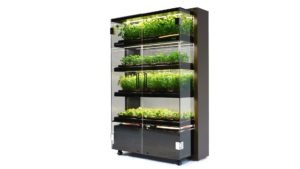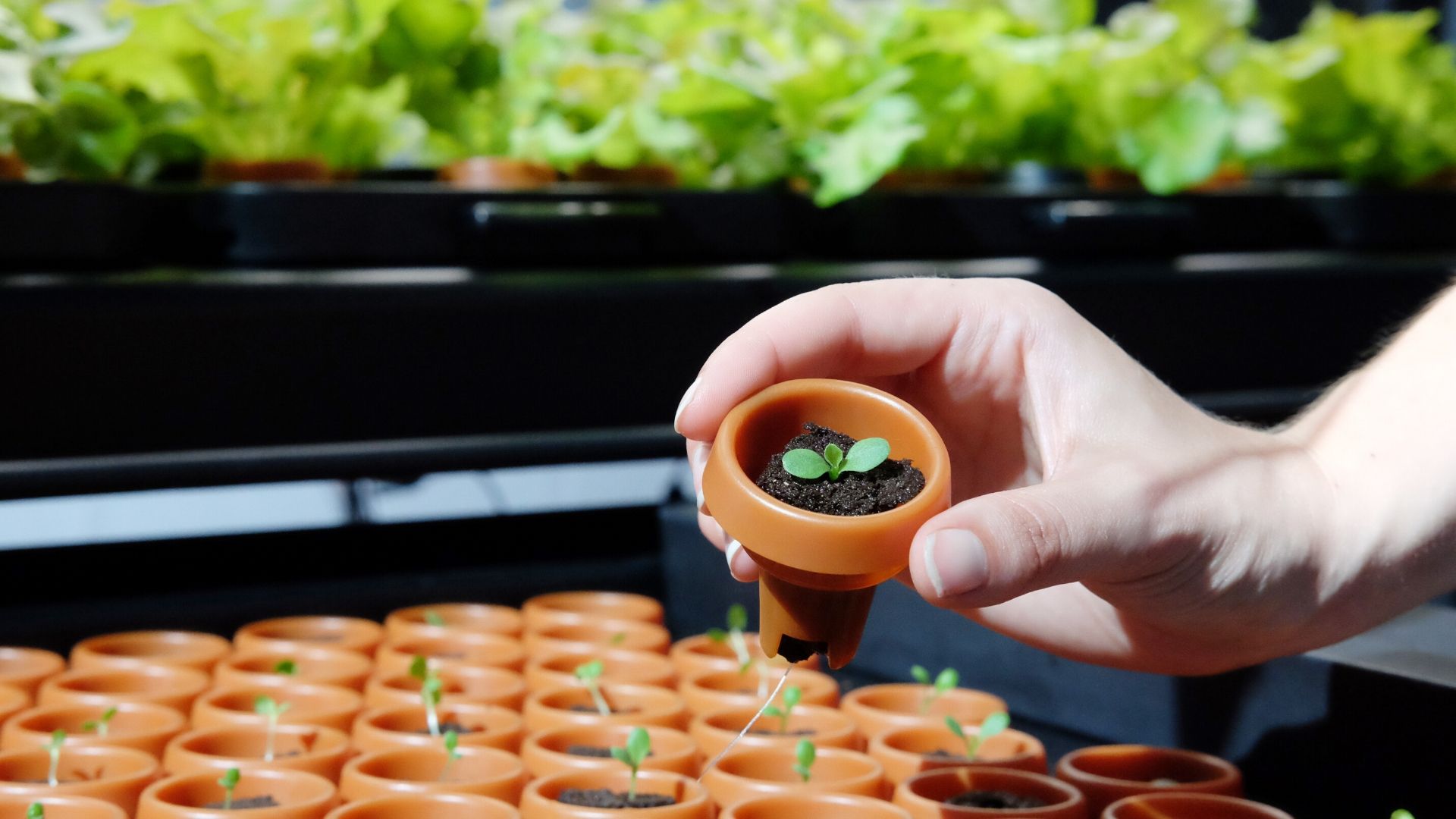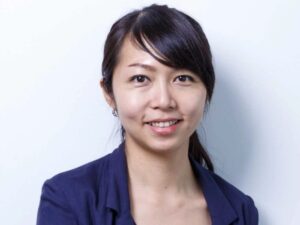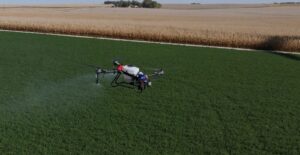she1K, the world’s first angel network led by global corporate executive women, has syndicated an early-stage investment in Farmshelf, a New York-based vertical farming startup. The Singapore-based angel syndicate did not disclose the sums involved.
Farmshelf has a distinct approach to US vertical farming trailblazers like Bowery, Plenty, AeroFarms or Freight Farms. Rather than stacking layer upon layer of lettuce, micro-herbs, or strawberries beneath strips of LED lights inside ever-greater central warehouses or shipping containers, Farmshelf plans to produce smaller, decentralised units — a similar play to Berlin’s Infarm, or Estonia’s Natufia.
These bookshelf-like units could, in turn, be placed in supermarkets, cafeterias, hotels or even homes, bringing the farm ever closer to the urban fork. In New York City, where my editor Louisa Burwood-Taylor is based, Farmshelf has a unit in WeWork’s new Food Labs location in Chelsea, so other Food Labs members can use the produce in the test kitchen.
In grand terms, Farmshelf’s business model could herald a future where farming is democratised to the point where city dwellers can grow their own fresh produce in their living rooms — a particularly remarkable feat for families and communities living in the desert, say, or the Arctic.

An Internet of Pantries
In a sense, however, these decentralised units would remain connected in a sort of IoP — an Internet of Pantries — to a centralised software system, which should relay insights back to Farmshelf about how to optimise the growing process across all units. Farmshelf’s plant recipes are comprised of the nutrient levels, humidity, temperature, light intensity, light spectrum and airflow levels optimised for growing particular plants, the team notes, stressing how these are “constantly improved as additional data using cameras and various environmental sensors present in the unit is collected.”
The team says the system is already equipped with “all the sensors and tools necessary to monitor the produces’ needs every step of the way and notify the user when to its ready to harvest.”
Bringing fresh produce closer to consumers will also go some way to reducing food waste, the team believes. As is often cited by vertical farming startups, Farmshelf eyes itself as a problem solver when it comes to tackling the worrying statistic that a third of all food produced globally is lost or wasted, totaling more than $35 billion a year. But the statistic that will perhaps hinder Farmshelf’s efforts to help here will be potentially the still-high cost of individual unit production, distribution and installment — no doubt a costly solution compared to produce from outdoor farms or even compared to their centralised indoor rivals doing so at scale under more controlled conditions.
Farmer Marriott, Farmer Hilton
That said, Farmshelf installations are already cropping up in international hotel chains like Marriott and Hilton, as well as in corporate cafeterias and restaurants.
Beyond wowing international hoteliers, Farmshelf has spent this year establishing more primary school partnerships and multiple university agreements. Over 100 systems have been sold or leased, the team says, together with a monthly subscription for plant pods in more than 50 varieties. This is a promising start, and it is worth factoring in the positive mental health side-effects of schoolchildren getting a hands-on appreciation of farming — an idea advocated long ago by the Russian writer Leo Tolstoy, no less!
Rather than digressing too far into 19th century Russian literature, let’s now get back to she1K. Farmshelf is the third company in its portfolio, hot on the heels of earlier syndicated investments into the drone solutions company Performance Rotors and the personalised medicine company Stratificare. Founded in November 2018 in Singapore by Christine Teo, she1K also extends to angels – male or female – and co-investing partners such as early-stage funds. Its early-stage investments are gender and industry-agnostic; as of August 2019, she1K is backed by Enterprise Singapore.
“When I was in New York this summer, we chanced upon Farmshelf,” Teo tells AFN in an emailed note outlining the Farmshelf deal, which also involved Sansiri, Thailand’s largest property developer, among others. “We like the team and their vision and their technology. So we decided to syndicate from some of our interested members. Not all investors are women and we have different nationalities amongst the investors who resonate with the problem Farmshelf is solving.”
For early-stage startups reading this, a strong chance to pitch to she1K will likely be its next C-suite “shark tank,” scheduled for 20 February 2020. Applications for pitching close at the end of this year.
You can catch Christina Teo’s views on what is holding back corporate women angel investors here. If you have any further insights on this topic, give me a shout at [email protected]





